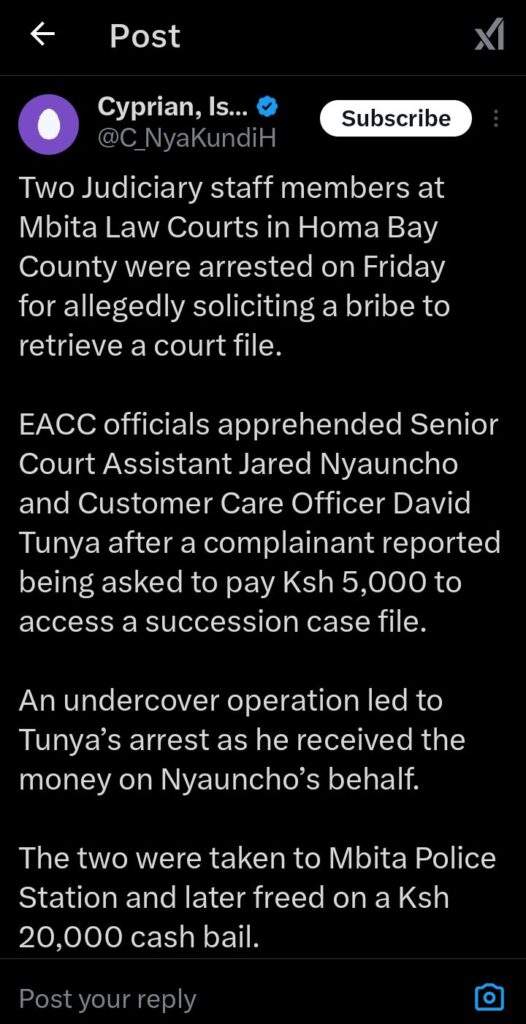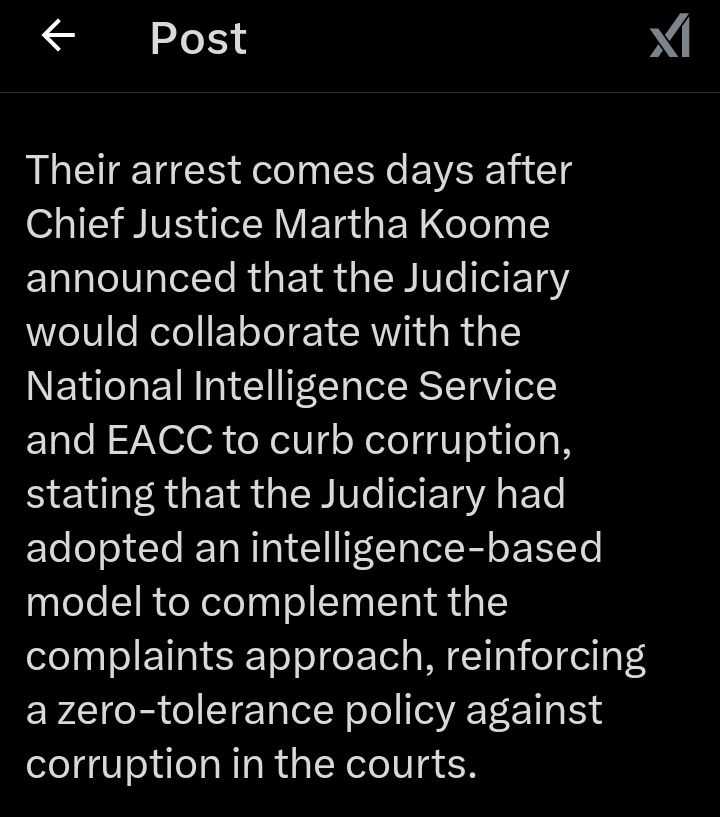The fight against corruption in Kenya’s Judiciary has once again come to the spotlight after two Judiciary staff members at Mbita Law Courts in Homa Bay County were arrested for allegedly demanding a bribe.
The Ethics and Anti-Corruption Commission (EACC) officials on Friday arrested Senior Court Assistant Jared Nyauncho and Customer Care Officer David Tunya following a complaint that they were asking for Ksh 5,000 to retrieve a court file.
The complainant, who needed access to a succession case file, reached out to the EACC, leading to a sting operation.EACC officers set up an undercover operation, which resulted in the arrest of Tunya as he was receiving the money on behalf of Nyauncho.
The two suspects were immediately taken to Mbita Police Station, where they were held before being released on a Ksh 20,000 cash bail. The incident has raised concerns about corruption in the Judiciary, especially at the lower courts, where reports of bribery and case manipulation are common.
Their arrest comes just days after Chief Justice Martha Koome reaffirmed the Judiciary’s commitment to tackling corruption.

She had recently stated that the Judiciary would collaborate with the National Intelligence Service and EACC to strengthen the fight against graft within the judicial system.
She further noted that the Judiciary had adopted an intelligence-based approach to complement the complaints system, aiming to enhance transparency and accountability.
The arrests of Nyauncho and Tunya seem to be a direct result of this renewed crackdown.This case highlights the deep-rooted corruption that has plagued Kenya’s judicial system for years.
Many court users have long complained about being asked for bribes to access justice, with some cases taking years to be resolved due to interference from corrupt officials.
The arrest of these two Judiciary staff members is a clear indication that corruption remains a serious problem, even with efforts to fight it.
There is now pressure on the Judiciary to ensure that the two suspects face justice if found guilty.
Many people believe that previous corruption cases within the Judiciary have been swept under the rug, with culprits either getting lenient punishments or being quietly transferred to other stations.
If the Judiciary is serious about its zero-tolerance policy, then this case should serve as an example to deter other corrupt officials.While Chief Justice Koome’s commitment to fighting corruption is commendable, the real challenge lies in enforcement.

Arrests alone are not enough if they do not lead to convictions and stronger measures to prevent bribery. Judiciary staff who engage in corrupt practices must be held accountable, and strict action should be taken to ensure that such cases do not continue.
The fight against corruption in the Judiciary will only succeed if there is real political will and consistent action against offenders.


